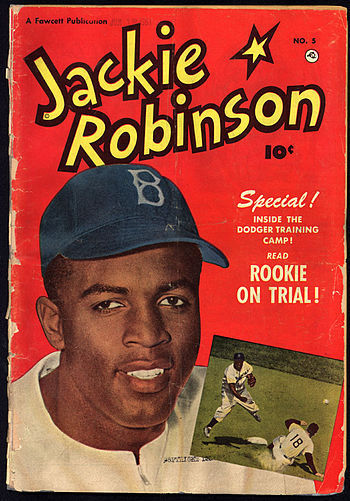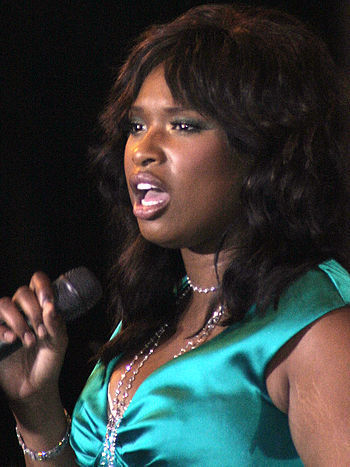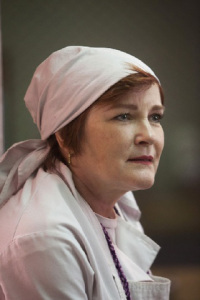Marcy Sheiner's Blog, page 5
August 4, 2014
Heir to the Glimmering World
by Cynthia Ozick
Heir to the Glimmering World by Cynthia Ozick is a strange, yet entirely realistic and believable novel. It's the story of Rosie, a poor teenage orphan who lands in the household of the Mitwissers, refugees from Hitler's Germany, as an amanuensis who becomes more of a family servant than a secretary. Told primarily from Rosie's point of view, it is of course the story of this family as well: Professor Mitwisser, an out-of-touch philosopher who lives entirely in some remote and obscure corner of history; his wife Elsa, the madwoman in the attic; their eldest daughter Anneliese, three sons, and the unfortunately named baby Waltrout. Into their lives comes a mysterious benefactor, heir to an endless stream of money earned by his father from The Bear Boy, a series of world-famous children's books.
I can't say Heir is a page-turner, but it's compelling enough, and Ozick's writing is flawless. While I doubt the book is strictly autobiographical, I'd bet my typing fingers Ozick based it on her own early experiences as a secretary, having held quite a few equally oddball positions myself.
The best thing about this novel, though, is the ending: it's been many years since I've read a book that so completely satisfied me in the end. Some readers will no doubt think it a bit too tidy, but I'm of the camp that eschews inconclusive denouements. It doesn't take a prophet to know that every story like life goes on—but I appreciate a book and an author that can deliver the goods in the final pages. Well done, Ms. Ozick!
July 21, 2014
Still Writing
Okay, I haven’t posted anything lately–but that’s mostly because I’m still trying to get my new website off the ground. And maybe I’m becoming so overwhelmed by the sheer verbiage of this world, I find I have nothing to say, except maybe outrage over world events.
And okay, maybe my claim to the title “Still Writing” is tenuous these days, but I’m sure I’ll be back eventually. Meanwhile, please go visit my new website at:
http://marsheiner.wordpress.com/
You could even follow it!
Filed under: Musings Tagged: Sex, Writing

June 23, 2014
The Jackie Robinson of Pot

Front cover of Jackie Robinson comic book (issue #5). (Photo credit: Wikipedia)
Last week on his program Bill Maher said that Colorado is the Jackie Robinson of pot. Just as JR was the first to break the color line in Major League Baseball, the State of Colorado is the first to legalize pot and not just for medical purposes. As most people know by now, JR was purposely chosen for his ability to ignore the insults, racism and even objects that fans hurled at him on the field. Not once did Jackie Robinson fight back, or even talk back. They’d spit at him, call him names, and he’d go on playing baseball, ignoring all the hatred.
With gravity in his voice, Maher proclaimed Colorado to be in the same position, warning them to “BE the Jackie Robinson of pot!” He ran down a list of what Colorado should and should not do in order not to ruin the chance for all of the U.S. to eventually legalize marijuana: “Don’t go all Cheech & Chong he said.” He told them not to market to children, and not to name some strains of pot things like Gummi Bear or Chocolate Cake. “Talk to your customers,” he cautioned, to find out their level of experience with pot before selling novices their strongest brand.
The Jackie Robinson of pot. I’m tickled by the idea; I don’t know when I’ve been so moved by Bill Maher.
So go ahead, Colorado and BE the Jackie Robinson of pot.
Filed under: Musings Tagged: Baseball, Bill Maher, Colorado, Jackie Robinson, Major League Baseball

June 21, 2014
Dreamgirls Redux
I hate to go on and on about something, but it has, after all, been seven years since the film Dreamgirls came out. Having just watched it for the third time, I’m astounded at how great this movie is. That it only garnered two Academy Awards–one of them for for Supporting Actress, and I’m telling you, if she hadn’t gotten that, it would’ve been the artistic crime of the century.(see my original review, Is Dreamgirls Hollywood’s Worst Nightmare?”

Jennifer Hudson (Photo credit: Wikipedia)
I’d forgotten a lot of the story, and continually found new things I’d missed in the film. One scene I had not forgotten, however, is when Jennifer Hudson flays herself on stage singing “And I am Telling You I’m Not Going.” It’s the peak of the movie, and although it takes a slight nosedive after that, it recovers nicely with Hudson later singing “I Am Changing,” which I’d forgotten, and “One Night.” Beyoncé was great, and sang her heart out—but Jennifer Hudson walked off with this show.
I saw West Side Story something like 45 times in my long life; I’ve seen Chicago maybe 6 times; and now I have another go-to movie musical to rent when I want a cathartic experience.
Related articles
 Jennifer Hudson Oscars: Singer Wows With ‘Dreamgirls’ Academy Award Performance (VIDEO)
Jennifer Hudson Oscars: Singer Wows With ‘Dreamgirls’ Academy Award Performance (VIDEO)Filed under: movies, music, Review Tagged: Academy Award, And I Am Telling You I'm Not Going, Beyoncé Knowles, Chicago, Dreamgirls, Jennifer Hudson, Musical film

June 19, 2014
Let’s Go To The Prom
 Originally posted on Dirty Laundry:
Originally posted on Dirty Laundry:
Dedicated to Frankie Scolaro
If you aren’t a teenager and you don’t have any such creatures hanging around the house, it probably doesn’t even cross your radar, but this happens to be a very important time of year for high school seniors. Yes, of course, graduation’s coming up—but I’m talking about something almost as important—the Senior Prom. These days, or so I’ve been told, kids don’t necessarily have to be coupled up to attend the Prom–some of them go in groups, which I consider a major act of liberation. But whether she goes with a friend or a fiancée, a teenage girl still needs the dress. And March is when they start shopping for it.
Evening wear—dress, matching shoes and purse, jewelry, hairdo—it can cost hundreds of dollars for a girl to be properly prom-attired. That may be fine in Beverly Hills, but around Oaktown and other working-class ‘hoods, it’s…
View original 851 more words
Filed under: Musings

June 7, 2014
Orange Is The New Best Show!
I just finished watching the first season of Orange Is the New Black, and man oh man, how I wish I had more of it to watch right this minute! The second season is about to begin, but I don’t watch livestream because my free WiFi connection isn’t good enough: videos stop running at some point, or else they bumble through to the end, stopping and starting every few minutes. Thus, I waited until it came out on DVD to see the entire first season; and now I’ll have to wait for the second.
I’m not going to give any summaries or recaps here, but there will no doubt be “spoilers.” To tell you the truth I’m a little sick of this spoiler warning bullshit—which I’ll expound upon at some other time.
Like Regina Specter’s song in the opening of the show says, “Remember their faces,” and I remember every one of them vividly. These characters are so well-drawn, their stories so compelling, they’ve become embedded deep in the neurons of my brain. I suppose I’ll just have to subsist on memories for how ever many months it takes…and in the meantime, I have a few opinions about the goings-on.
Q: What makes this show so terrific?
A: It’s about women. Women’s lives, one hundred percent and more real than any so-called reality show.

Big REd
Example: A group of prisoners sit in a circle hatching plans so Daya can have her baby without revealing that the father is one of the guards, who she’s in love with. Big Red, Bitch-Goddess of the Prison Kitchen, solemnly advises Daya in a thick Russian accent (I’m paraphrasing here), “Think carefully: every decision you make now is going to affect your family for a long time. Welcome to motherhood.” That just about slayed me.
 Piper Chapman, the main character sleep-walks through life, as everyone accuses her of doing, letting whatever happens to her happen, taking no responsibility for any of it. She doesn’t seem to realize that words have consequences, that when she tells Healy, her prison counselor, to go fuck himself, he’ll turn on her in the most vicious way he can conjure up. It’s only beginning to dawn on her that you can get into trouble saying the wrong things in prison; for instance, if you tell a seriously disturbed religious fanatic her beliefs are a crock of shit, she will seek revenge. In the last episode Chapman gave lip service to accepting responsibility for the crime that got her into jail, but her words were unconvincing. She blames Alex, her ex-lover and partner in crime, who did indeed turn her in to get less time herself.
Piper Chapman, the main character sleep-walks through life, as everyone accuses her of doing, letting whatever happens to her happen, taking no responsibility for any of it. She doesn’t seem to realize that words have consequences, that when she tells Healy, her prison counselor, to go fuck himself, he’ll turn on her in the most vicious way he can conjure up. It’s only beginning to dawn on her that you can get into trouble saying the wrong things in prison; for instance, if you tell a seriously disturbed religious fanatic her beliefs are a crock of shit, she will seek revenge. In the last episode Chapman gave lip service to accepting responsibility for the crime that got her into jail, but her words were unconvincing. She blames Alex, her ex-lover and partner in crime, who did indeed turn her in to get less time herself.
 I adore Alex, and I can’t stand Piper for causing her heartache. She abandoned Alex on the heels of her mother’s sudden death, with Alex begging Piper to just accompany her to the funeral. Piper walks out and slams the door, muttering some nonsense about her needs. At the time of the series, her affair with Alex is long over and she’s engaged to a nebish of a man who understands even less of the world’s functioning than she does. Larry, who looks exactly like the preppie writer wanna-be he is, uses Piper’s situation as a stepping-stone to a career: he writes an article for the New York Times about his experience of her imprisonment. Even worse, he later chats it up on Urban Tales, a fictive NPR show emceed by one Murray Kind, a shoo-in for Ira Glass of This
I adore Alex, and I can’t stand Piper for causing her heartache. She abandoned Alex on the heels of her mother’s sudden death, with Alex begging Piper to just accompany her to the funeral. Piper walks out and slams the door, muttering some nonsense about her needs. At the time of the series, her affair with Alex is long over and she’s engaged to a nebish of a man who understands even less of the world’s functioning than she does. Larry, who looks exactly like the preppie writer wanna-be he is, uses Piper’s situation as a stepping-stone to a career: he writes an article for the New York Times about his experience of her imprisonment. Even worse, he later chats it up on Urban Tales, a fictive NPR show emceed by one Murray Kind, a shoo-in for Ira Glass of This  American Life. , who adapted Piper Kerman’s memoir, Orange Is The New Black: My Year in a Woman’s Prison, for the Netflix series, told Fresh Air’s Terry Gross that Urban Tales is a take on This American Life, and she’s an Ira Glass fan. So why didn’t Ira play the role of this faux Ira? ‘I asked Ira if he would do it and he politely declined,’ Kohan said.
American Life. , who adapted Piper Kerman’s memoir, Orange Is The New Black: My Year in a Woman’s Prison, for the Netflix series, told Fresh Air’s Terry Gross that Urban Tales is a take on This American Life, and she’s an Ira Glass fan. So why didn’t Ira play the role of this faux Ira? ‘I asked Ira if he would do it and he politely declined,’ Kohan said.
Not only does Larry appropriate Piper’s story for his own benefit, he tells tales out of prison about other inmates, who despise Piper for it. He’s clueless about wher she is and with whom, and that he could seriously hurt her with his idle chatter. As for the sleep-walking Piper, she barely confronts him, and never tells him straight out to knock it off: she still wants to marry the creep! In their last phone conversation, when I wanted her to tear off his head, at least verbally, she sobbed pitifully when he broke off their engagement. Little does she know, he did her a big favor.
But she can’t go back to her hot lesbian lover: Alex won’t allow Piper near her anymore, and at the conclusion of Season One Piper is completely alone. As much as I’ve come to dislike her, I did feel sorry for her. None of the inmates want to be her friend; some even despise her. Her counselor, Mr. Healy, simply walks away while the crazed religious fanatic goes at Piper with a razor. The only thing she’s got going for her is remembering the street-fighting techniques the black girls taught to her gratis—and she uses them. As the show ends Piper is smashing Ms. Jesus to a bloody pulp, and we’re left wondering if she survives the beating.
Well, I can hardly wait for Season Two, though after that ending it’s sure to start out with Piper in solitary, aka the SHU—and oftentimes I simply can’t watch scenes of solitary confinement: I fear it and empathize too much. I braved Piper’s first trip to the SHU, and the fact that it didn’t bother me inordinately is an indication it wasn’t that intense, unlike true stories I’ve read or the portrayal, in his biopic, of Reuben Hurricane Carter’s time in isolation. I’m not criticizing that; I’m glad it wasn’t unbearable: I don’t want to have to skip one single minute of Orange Is The New Black. Ever.
Related articles
 ‘OITNB’ season 2 review
‘OITNB’ season 2 review Back in Orange
Back in Orange Your Guide to Catching Up to ‘Orange Is the New Black’ in Time for Season Two
Your Guide to Catching Up to ‘Orange Is the New Black’ in Time for Season Two
Filed under: Review, solitary confinement, Television, TV, women Tagged: Alex, Ira Glass, Jenji Kohan, Netflix, Orange Is The New Black, Piper Chapman, Piper Kerman

May 25, 2014
Still Writing: New Blog
Readers and other Dirty Laundry Followers!
I’ve just begun a new blog, Still Writing, with a primary focus on writing, books, and most particularly, my books.While the site is still under construction, I’d be delighted to get some visitors, commentary, followers, and feedback. The construction is going slow, but there’s a hefty number of posts up that I transferred from another old blog, BookBuster, soon to be permanently shut down. In fact, I just put up a Dirty Laundry post from last year about the wide world of publishing, so come on over.
Filed under: Musings Tagged: Books, dirty laundry, Publishing, rant, Writing

May 18, 2014
Bibliotherapy: Who Knew?
A book enters the life of an individual, a deep relation is formed, and the person changes in some significant way as a result of this engagement. Bibliotherapy deals with how and why this happens, and how this process can be put to use in ways which improve our lives as individuals and as social beings.—from What is Bibliotherapy?
The intentional use of reading as a therapeutic method has been around since the 1930′s, perhaps even earlier: the ancient Greeks considered literature psychologically and spiritually powerful and their library doors held signs proclaiming it “a healing place for the soul”.Its basic concept is that reading, like other forms of therapy, can help people resolve complex problems in their lives. After World War II bibliotherapy was used in both general practice and medical care for soldiers with time to fill while recuperating. Bibliotherapeutic groups were also used in psychiatric institutions.
I have to wonder, if it’s so widespread, how come I, a seasoned therapy patient who’s undergone, at various times in my life, talk therapy, cognitive behavioral therapy, bioenergetics, re-evaluation counseling, gestalt, and dance and movement therapy, never even heard the word bibliotherapy? And when I Googled it I found only a few books on the topic. 
One book I skimmed, The Novel Cure: From Abandonment to Zestlessness: 751 Books to Cure What Ails You, by Ellen Berthoud and Susan Elderkin, suggests specific books for particular ailments—but I found it superficial and even, in some places, silly. I was stunned that they recommend The Woman in the Dunes by Kobo Abe to help cure agoraphobia. Dunes is the story of a Japanese village whose residents live in houses buried beneath piles of sand that they constantly must sweep their way out of, only to be buried again the next day. It’s an allegory of the futility of life; at least that was my interpretation when I read it as a teenager. I was so disturbed by Dunes that to this day I remember the way I felt reading it some 50 years ago—and the memory still makes me shudder. A cure for agoraphobia? Maybe—but it had a negative effect on me and my growing claustrophobia.
The Guardian UK calls the authors of The Novel Cure “Bibliotherapy’s founders”, according to Robert McCrum, who went to them for his own therapy via literature. Says the Guardian, “Bibliotherapy is the new service offering solace to jaded souls – by revitalising your reading list. We sent six of our writers to find out if it works.” Each writer presented a brief description of a session with one of the practitioners at the “Delightfully Offbeat School of Life” in London, where the service is offered, along with his or her prescribed reading list. The descriptions were amusing, the prescriptions interesting, and I’m sure I’d thoroughly enjoy one of these sessions. Does that make bibliotherapy a valid method of analysis and/or improvement? I have my doubts—and yet, as I said in a guest post for Tolstoy Therapy, I’ve been unwittingly practicing bibliotherapy myself for most of my life, though I didn’t name it.
 I suspect that one reason bibliotherapy isn’t more widely known is that, despite a great deal of anecdotal evidence, very little research has been conducted to prove or disprove its effectiveness. It also seems to be more popular in the UK than in the States. From my interactions on Goodreads with the British, I’m learning this happens a lot: a trend that goes viral in the US might leave the Brits cold, or they go crazy for something new that we’ve barely even looked at.
I suspect that one reason bibliotherapy isn’t more widely known is that, despite a great deal of anecdotal evidence, very little research has been conducted to prove or disprove its effectiveness. It also seems to be more popular in the UK than in the States. From my interactions on Goodreads with the British, I’m learning this happens a lot: a trend that goes viral in the US might leave the Brits cold, or they go crazy for something new that we’ve barely even looked at.
I’m following Tolstoy Therapy, the most interesting blog I’ve yet to find on the subject. You don’t have to commit to heavy self-analysis to enjoy reading about PTSD and literature, book reviews and recommendations, theories on why we enjoy reading fiction, and dozens of other relevant subjects. Check it out.
Related articles
 Bibliotherapy
Bibliotherapy The novel cure
The novel cure Bibliotherapy: When A Good Dose of Prose is All You Need
Bibliotherapy: When A Good Dose of Prose is All You Need Entry #3 Februrary 18, 2013
Entry #3 Februrary 18, 2013 Wordy Wednesday: bibliotherapy
Wordy Wednesday: bibliotherapy
Filed under: Life, Literary Services, Literature, Musings, readers, Therapy, writers, Writing Tagged: Bibliotherapy, cures, Guardian, Literature, Novel Cure, reading list, Robert McCrum, Susan Elderkin, Woman in the Dunes

May 4, 2014
Laika In Lisan: New Book
 First : Immediate and Full Disclosure: I worked with Maron Anrow, this book’s author, editing Laika in Lisan. It’s because I liked the book so much that I’m posting it on my blog as a publicity shot. This is something I’ve never done with a book I’ve worked on: that’s how much I liked it.
First : Immediate and Full Disclosure: I worked with Maron Anrow, this book’s author, editing Laika in Lisan. It’s because I liked the book so much that I’m posting it on my blog as a publicity shot. This is something I’ve never done with a book I’ve worked on: that’s how much I liked it.
Laika in Lisan is classified as “fantasy,” a genre I previously thought meant dungeons and dragons or monsters shooting one another with laser beams up in the sky—but this novel could have taken place in our world, in a repressive country like North Korea; in fact, Lisan is very much like that country, with its citizens forced to worship their leader; all resources diverted to the military and those in power while the workers starve; and extreme isolation from other nations.
My favorite part is the relationship between Laika and Rodya, an anti-government radical she meets in the woods after her journey into the capitol, where she’s been invited as a visiting scholar, is waylaid by violence. Their interactions, dialog, and progression of their relationship are unlike any other I’ve read, and it provides a welcome relief from the intensity of everything else that occurs. That’s not to say I didn’t enjoy everything else; this book is replete with the kind of suspense that had me sitting on the edge of my chair the first time I read it, furiously clicking through my Kindle to see what happens next: in other words, it’s a real page turner—or screen clicker.
And now for a moment on my soapbox: Laika in Lisan is one of thousands? millions? of books that are part of the independent publishing movement, growing bigger every day. Some of these books are so crappy they make this movement look lousy, but I’ve found just as many genuinely good books as bad ones in the mix. This movement has the potential to remove the mega-sized publishing corporations as gatekeepers of what reaches the reading public, and to put writers in control of our work. For this to happen, however, indie authors must put as much careful precision into their final products as they would if they were working for a publisher, particularly one who’s paid them an advance. Laika in Lisan is one book, believe me, that’s gotten that kind of precise authorial attention. Climbing off soapbox.
Click over to Amazon and check it out; the book is now available for the Kindle; in a few weeks the print version will be ready. And it’s already garnered two

Maron Anrow
reviews, both of them positive!
Oops…I almost forgot to mention that Laika in Lisan is Anrow’s first novel, a fact I include because you’d never guess it’s by someone without more experience. I’m proud to have been a part of this literary endeavor.

Filed under: Editing, fiction, Literature, Politics, Publishing, Writing Tagged: Amazon, Arts, Book, fiction, North Korea

April 27, 2014
When Language Changes

Grant Barrett & Martha Barnette. Photo credit: Website A Way with Words
The podcast has become my primary form of cultural enlightenment, and lately I’ve been listening to A Way With Words where Grant Barrett and Martha Barnette answer questions about words and phrases in the English language—or, according to the official description, “A Way with Words is a call-in public radio show about language. It’s heard across the country and around the world by broadcast and podcast.” The subject is apparently inexhaustible, and the hosts are enthusiastic researchers and conversationalists. Besides making me laugh a lot, they’ve taught me a thing or two about this language I’m always going on about, and forced me to look at the reasons behind some of my raving reactions. It turns out I am not alone in my rage over some new turns of the English screw—for instance, using nouns as verbs, such as turning the honorable journal into a self-help regimen (to journal), or overuse of trendy phrases (going forward tagged onto the end of anything with a future, no matter how distant or vague).
Actually, those aren’t the best examples, since I’ll probably always loathe and refuse to use them. The place where I need to loosen up is in adapting to change, understanding that language is a dynamic phenomenon that evolves along with the speaking species. Failure to adapt might, in fact, be seen as failure to evolve. It turns out that much of what we take for granted as gospel already differs from its original usage, only we don’t always know it since the changes occurred before we paid attention, or even eons before we were born. Linguistic change has probably been a part of culture since the first cave dweller uttered his first hello to his cave mate, and they both burst into astonished laughter—or so I imagine the scenario.
As I’ve learned from Grant and Martha, it’s the transitional stage, shortly after a word begins its long, slow journey from one meaning or nuance to another, that’s so hard for some people. It’s during this period that I and others with my sensitivities cringe at the new. The first time I heard the word impact used as a verb it was by a favorite disk jockey on the radio (“We’ll have to see how this development impacts the community”). I was alarmed; I assumed he’d used it incorrectly, and I’d have to re-evaluate my respect for the guy. But soon I was hearing how things impacted other things all the time, and with every utterance I cringed. I know I’m showing my age here; to impact went viral a long time ago, way before the Internet even, and I no longer blink much less cringe at it anymore. I myself have never, however, used impact as a verb. Or journaling. Nor do I say we’re going forward. I absolutely refuse to jump on these linguistic tropes. Oops! I just did it with trope! I remember when that term went viral: I was at a weekend conference with someone who used it repeatedly, until I bluntly asked her what was up. She apologized and said it was indeed a virus she’d caught. How about we ruminate on that for a while, on the word virus, its literal meaning and its YouTube meaning. Look it up. I especially like Definition #3: any corrupting or infecting influence.
As you can no doubt tell by my tone and my avowed “refusal to jump on linguistic tropes,” I have yet to integrate my new awareness of language as a changing phenomenon with my gut reactions. What can I say? I’m working on it. Evolving. I think I’ll go journal write in my journal about it. Maybe I’ll change going forward someday. On second thought, maybe I won’t.
Related articles
 To verb or not to verb?
To verb or not to verb?
Filed under: Language Tagged: English language, Grant Barrett, Language, Linguistics, Martha Barnette, rant, YouTube






